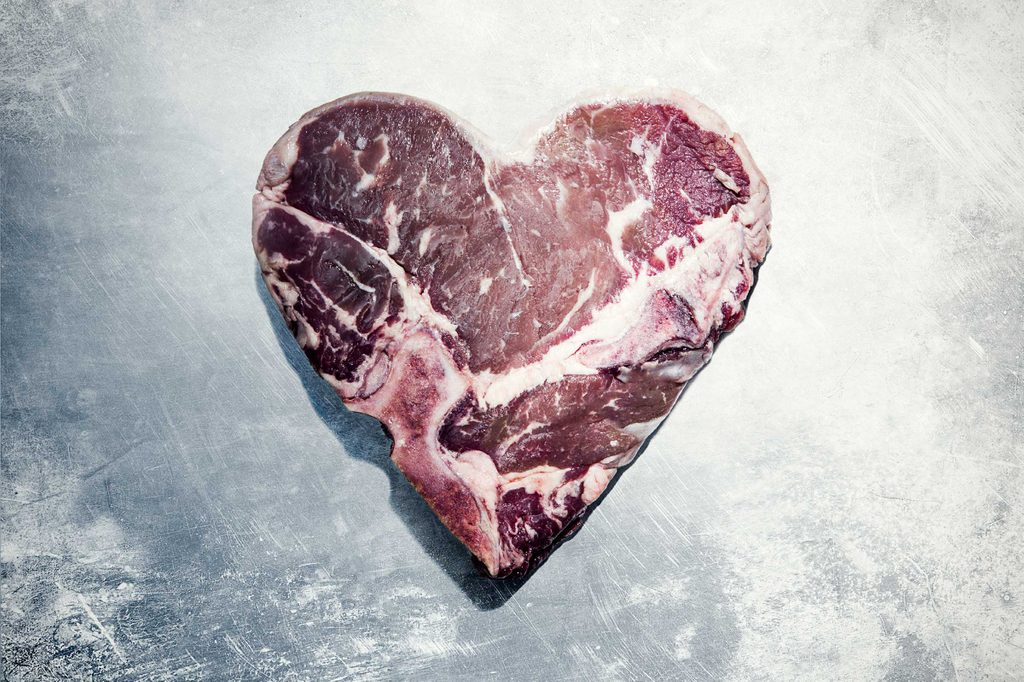Is Eating Meat Good or Bad for You?
Updated: May 11, 2021

Fortified with vitamins or cause of cancer: Here's a lean lowdown on the latest studies to help you determine whether red meat is bad for you to eat.
What You’ve Heard
Burgers, steaks, hot dogs—red meat is an American diet staple, but our carnivore cravings may be killing us. After tracking food choices of more than 81,000 adults over an eight-year period, Harvard researchers found that people who ate half a serving more of red meat, especially processed red meat, every day were about 13 percent more likely to die during the subsequent eight years than people who didn’t eat the extra meat. The same amount of unprocessed red meat increased risk of death by 9 percent.
Earlier research that looked at unprocessed meat and processed meat found that processed meat was associated with an increase in heart disease and diabetes risk, but this association wasn’t found for unprocessed meat. This is what might happen if you give up red meat.
Saturated fat and cholesterol are only the start of meat’s diet dangers. Overloads of iron can threaten the hearts of meat eaters; sodium and nitrates make processed meat even worse. It’s no wonder that many experts recommend reducing or eliminating red meat from your diet.
But Wait …
A 2017 report found that women who don’t eat enough red meat are likely to fall short of the amount of iron, zinc, potassium, and B vitamins they need. And a study in the Journal of Clinical Lipidology found that lean meat doesn’t negatively impact a person’s blood lipids. That’s important because the amount of fat in your blood can increase your risk for some health issues. “Lean meat can be part of a healthy diet,” says Carol O’Neil, PhD, a professor of human nutrition and food at Louisiana State University. If you’re shopping for meat at the grocery store, choose these five best meats, and avoid the worst two.
Then there’s the planet to consider
Plenty of research has made the connection between raising livestock and increased greenhouse gasses. In fact, a herd of cows may do more damage than a bunch of cars in a traffic jam on the highway. A 2014 study published in Global Environmental Change, found that lower livestock production in Europe led to 25 to 40 percent lower greenhouse gas emissions. Eating more plant proteins–such as tofu, nuts, seeds, beans and legumes–and less animal protein could have a positive effect on both your own health and the health of the environment.
So what should you do?
You can still fit a few servings of red meat into a healthy diet, as long as the rest of your diet is truly a healthy one. When you do choose red meat, select lean cuts and avoid processed meats (bacon, sausage, bologna—anything preserved with salt, curing, or chemicals). The key is to make sure that red meat is only an occasional indulgence, not a daily event. And when you do skip the meat (or reduce your serving size) be sure to fill the rest of your plate with healthy foods such as vegetables, fruit and whole grains. But beware: You might experience these 11 things if you eat too much meat.